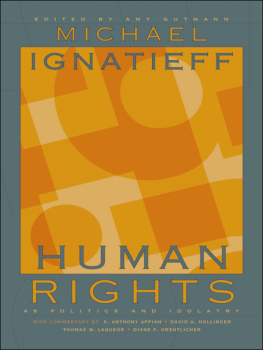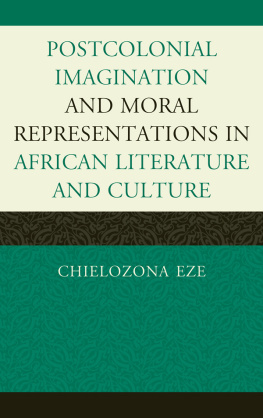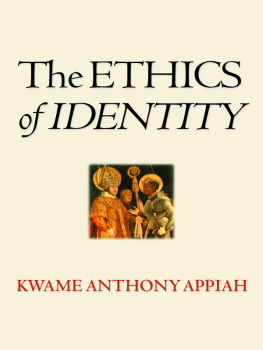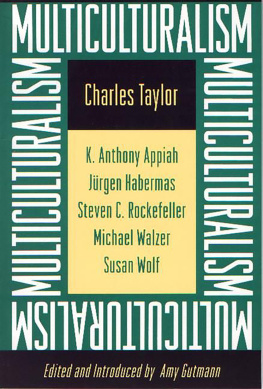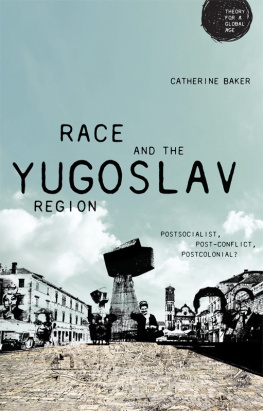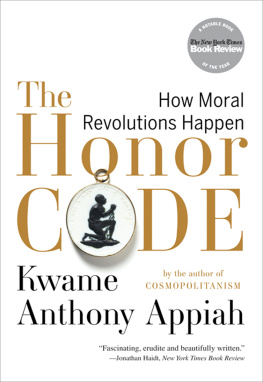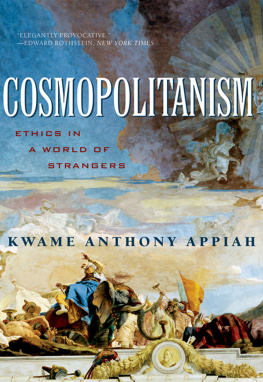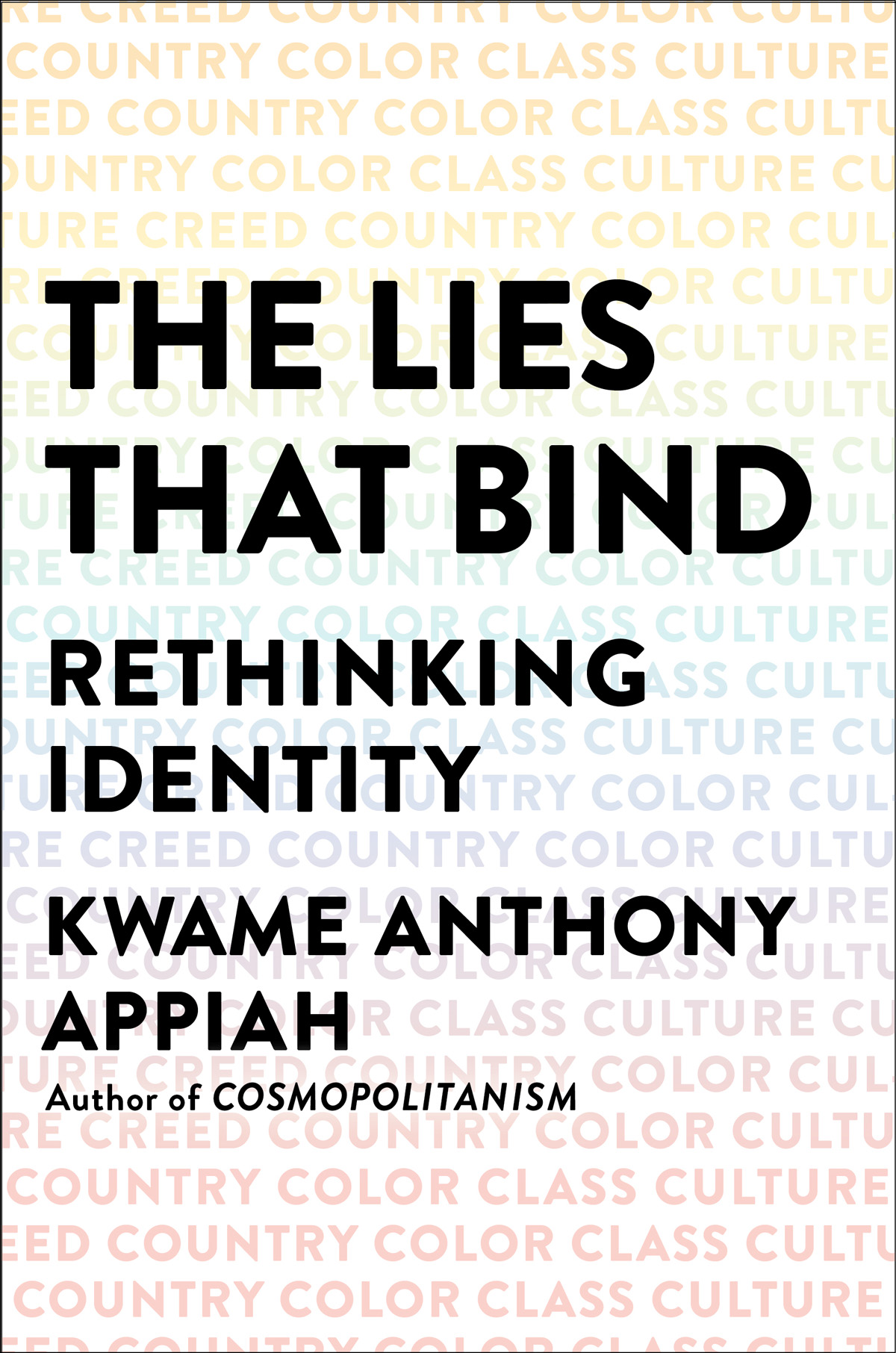Contents
Guide
Page List
OTHER BOOKS BY KWAME ANTHONY APPIAH
As If: Idealization and Ideals
Lines of Descent: W. E. B. Du Bois and the Emergence of Identity
The Honor Code: How Moral Revolutions Happen
Experiments in Ethics
Cosmopolitanism: Ethics in a World of Strangers
The Ethics of Identity
Thinking It Through: An Introduction to Contemporary Philosophy
In My Fathers House: Africa in the Philosophy of Culture
THE LIES THAT BIND

Rethinking Identity
CREED, COUNTRY, COLOR, CLASS, CULTURE
KWAME ANTHONY APPIAH

LIVERIGHT PUBLISHING CORPORATION
A Division of W. W. Norton & Company
Independent Publishers Since 1923
New York London
Copyright 2018 by Kwame Anthony Appiah
The book is based on the BBC Reith Lectures 2016, first broadcast on BBC Radio 4.
All rights reserved
First Edition
For information about permission to reproduce selections from this book, write to Permissions, Liveright Publishing Corporation, a division of W. W. Norton & Company, Inc., 500 Fifth Avenue, New York, NY 10110
For information about special discounts for bulk purchases, please contact W. W. Norton Special Sales at specialsales@wwnorton.com or 800-233-4830
Book design by Kristen Bearse
Production manager: Beth Steidle
JACKET DESIGN BY JASON HEUER
The Library of Congress has cataloged the printed edition as follows:
Names: Appiah, Anthony, author.
Title: The lies that bind : rethinking identity, creed, country, color, class, culture / Kwame Anthony Appiah.
Description: First edition. | New York : Liveright Publishing Corporation, 2018. | Includes bibliographical references and index.
Identifiers: LCCN 2018023080 | ISBN 9781631493836 (hardcover)
Subjects: LCSH: Identity (Philosophical concept) |
Group identity. | Identity (Psychology)
Classification: LCC BD236 .A58 2018 | DDC 302.5dc23
LC record available at https://lccn.loc.gov/2018023080
ISBN 9781631493843 (eBook)
Liveright Publishing Corporation, 500 Fifth Avenue, New York, N.Y. 10110
www.wwnorton.com
W. W. Norton & Company Ltd., 15 Carlisle Street, London W1D 3BS
For my sisters grandchildren, as they enter the world.
Spes mihi quisque.
Wer bin ich? Der oder jener?
Bin ich denn heute dieser und morgen ein andrer?
Who am I? This one or that one?
Am I then this one today and tomorrow another?
Dietrich Bonhoeffer, Wer bin ich?
(1945)
Contents


O ver the years and around the world, taxi drivers, putting their expertise to the test, have sized me up. In So Paulo, Ive been taken for a Brazilian and addressed in Portuguese; in Cape Town, Ive been taken for a Colored person; in Rome, for an Ethiopian; and one London cabbie refused to believe I didnt speak Hindi. The Parisian who thought I was from Belgium perhaps took me for a Maghrebi; and, wearing a caftan, Ive faded into a crowd in Tangiers. Puzzled by the combination of my accent and my appearance, once our ride is under way, taxi drivers in the United States and the United Kingdom regularly ask me where I was born. In London, I tell them, but thats not what they really want to know. What they mean to ask is where my family came from originally. Or, more bluntly: what are you?
The answer to the question of originsthe where question if not the what questionis that I come from two families in two places pretty far apart. By the time I was born, my mother had lived in London off and on since her childhood, but her real home was far awayin atmosphere, if not in distanceon the edge of the Cotswold Hills, where she had grown up on a farm in a tiny village on the border of Oxfordshire and Gloucestershire. Her grandfather had a genealogist trace his ancestry back through eighteen generations of his forefathers to a Norman knight in the early thirteenth century who lived less than twenty miles from the place where my mother was born some seven hundred years later.
As a result, while my mother was, in a sense, a Londoner when I was born, she was at heart a countrywoman who just happened to work in London... though she had spent a fair amount of time living abroad during and after the Second World War, in Russia, Iran, and Switzerland. Not surprisingly, perhaps, given her international experiences, she found a job at an organization in London that was working for racial harmony in Britain and its empire, largely by supporting colonial students. It was called Racial Unity. That was how she met my father, a law student from the Gold Coast. He was an anticolonial activist, the president of the West African Students Union, and a representative in Britain of Dr. Kwame Nkrumah, who was to lead Ghana to independence in 1957, just a few years after I was born. You might say she practiced what she preached.
The other side of my family, then, came from Ghana: more precisely from Asante, a region in the heart of the modern Republic of Ghana. My fathers lineage, as he taught us, could be traced back to Akroma-Ampim, an eighteenth-century general whose successes in battle had won him the right to a great tract of land on the kingdoms edge. He was a member of the military aristocracy that created the Asante Empire, which dominated the region for two centuries; and his name is one of the names my parents gave me. My father raised us with stories of his family. In a sense, though, it wasnt really our family. Just as my mothers people, being patrilineal, thought you belonged to your fathers family, my fathers, being matrilineal, thought you belonged to your mothers. I could have told those taxi drivers I had no family at all.
This book is full of family stories because I want to explore the ways in which narratives like these shape our sense of who we are. Each persons sense of self is bound to be shaped by his or her own background, beginning with family but spreading out in many directionsto nationality, which binds us to places; to gender, which connects each of us with roughly half the species; and to such categories as class, sexuality, race, and religion, which all transcend our local affiliations.
Ive set myself the task in this book of discussing some of the ideas that have shaped the modern rise of identity and trying to see some of the mistakes we regularly make about identities more clearly. Philosophers contribute to public discussions of moral and political life, I believe, not by telling you what to think but by providing an assortment of concepts and theories you can use to decide what to think for yourself. I will make lots of claims; but however forceful my language, remember always that they are offered up for your consideration, in the light of your own knowledge and experience. Im hoping to start conversations, not to end them.
What I wont offer is an explanation of why identity talk has exploded through my lifetimea fascinating question, but one for intellectual and social historians. Instead, Im going to take the modern prevalence of ideas about identities as a given but challenge some of our assumptions about them. I aim to persuade you that much of our contemporary thinking about identity is shaped by pictures that are in various ways unhelpful or just plain wrong. Getting to pictures that are more helpful and closer to the truth wont


